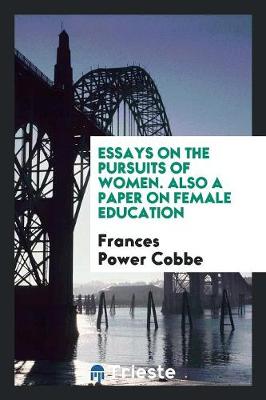Cambridge Library Collection - British and Irish History, 19th Century
2 total works
Frances Power Cobbe (1822-1904) was an Irish writer, social reformer and activist best known for her contributions to Victorian feminism. After the death of her father in 1857, Cobbe travelled extensively across Europe before becoming a leader-writer for the London newspaper The Echo in 1868. She continued to publish on the topics of feminism, social problems and theology for the rest of her life. This volume, first published in 1881, contains a series of essays discussing the ethical practice of feminism. Written during a transitional period for the movement, when calls for universal suffrage were becoming the defining feature of feminism, Cobbe advocates the need for women to practice a form of emancipation which does not conform to stereotypical views, in order to avoid a public backlash against universal suffrage. Emphasising the political importance of private behaviours, this volume demonstrates feminist responses to changes in nineteenth century feminism.
Essays on the Pursuits of Women. Also a Paper on Female Education
by Frances Power Cobbe
Published 16 September 2010
Frances Power Cobbe (1822-1904) was an Irish writer, social reformer and activist best known for her contributions to Victorian feminism and women's suffrage. After the death of her father in 1857, Cobbe travelled extensively across Europe before becoming a leader-writer addressing public issues for the London newspaper The Echo in 1868. She continued to publish on the topics of feminism, social problems and theology for the rest of her life. This volume, first published in 1863, contains a series of essays discussing topics of importance to early feminists. Cobbe explores sexual and matrimonial inequality and the changing status of and opportunities for single women, and advocates greater and more extensive female education. Cobbe also discusses possible reasons behind the inequality and limitations experienced by singe and married women, providing insights into the lives experienced by Victorian women and exemplifying the ideas and concerns of contemporary feminists.

